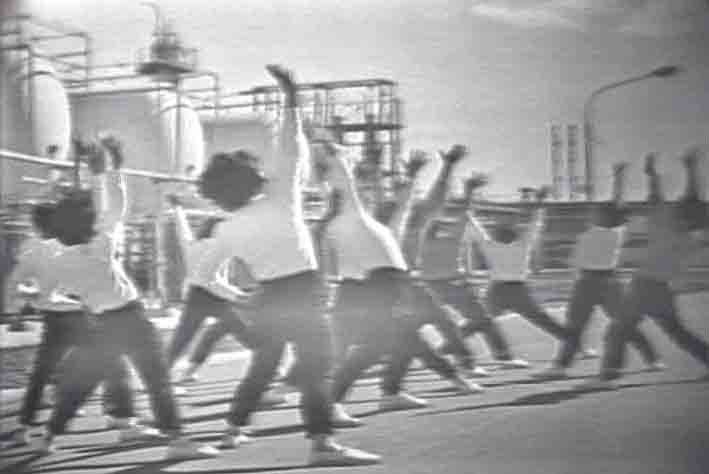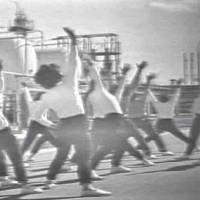In the early 1960s, Japan's television industry harbored an experimental spirit that was free from restrictive institutional ideology. It was a time of hope according to Inuhiko Yomota, professor of film history at Meiji Gakuin University.
An academic screening in Tokyo will offer a rare glimpse into the spirit of that period by featuring "Shochu to Gomu" ("Shochu Liquor and Rubber"), a 1962 docu-drama by Yotaro Konaka, who was then a director at NHK's Nagoya branch and is now a novelist. It's a must-see for those interested in the early years of Japanese television and antiwar movement here in the '60s and '70s.
In the film, Konaka had dancers perform a contemporary dance piece in front of a synthetic-rubber factory's glittering pipes, a la the American musical "West Side Story." The piece ends with an image of the wife of a farmer, who was forced by industrial capitalists to sell his agricultural field, pulling a wheeled garbage cart.
Former NHK director Ben Wada (1930-2011) happened to preserve Konaka's work by using a kinescope recorder, which converts TV images into film. The piece intended to capture Japan's capitalist system, which was enjoying high economic growth at the time. Konaka chose the factory for his film's setting, as it was built on a petrochemical complex site created by the leveling of a hill.
The late Makoto Oda (1932-2007) wrote the scenario. He was a novelist who focused on social themes and was specifically known for forming the "Peace for Vietnam" Committee, which introduced a new type of civic activism in the '60s that didn't feature a top-down command structure. Avant-garde composer Yuji Takahashi wrote the music. "Shochu to Gomu" is a testimony to their early years of creative energy.
Yomota characterizes the TV work as an "analytical documentary," but it could be one of the seeds for a rebellion.
"Shochu to Gomu" will be screened in the third-floor seminar room of Iwanami Shoten Annex in Chiyoda-ku, Tokyo, on July 14 (2 p.m. start). Inuhiko Yomota and Yuji Takahashi will take part in a talk session. Admission is ¥1,000. For more information, call 03-3219-5861. English translation will not be available.




















With your current subscription plan you can comment on stories. However, before writing your first comment, please create a display name in the Profile section of your subscriber account page.